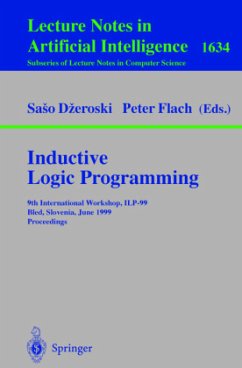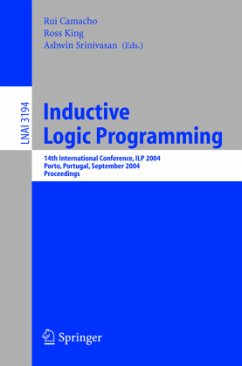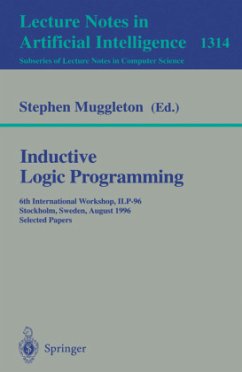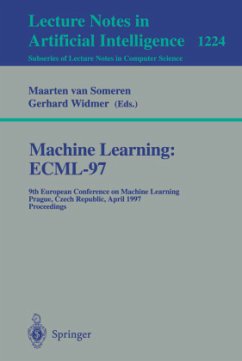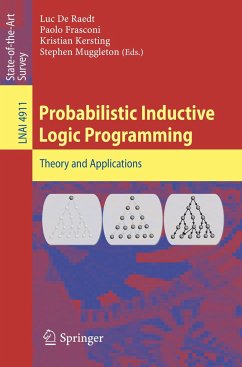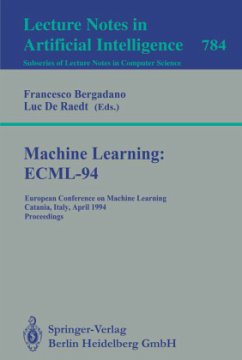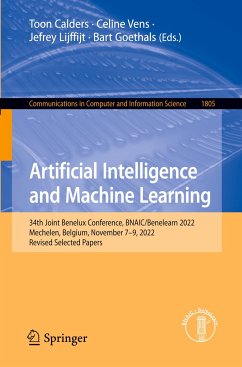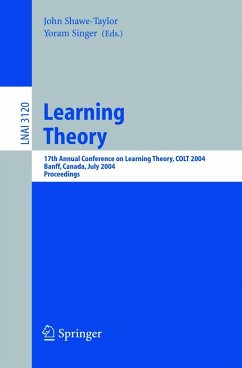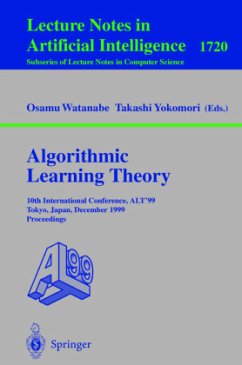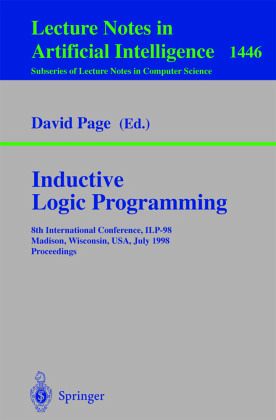
Inductive Logic Programming
8th International Conference, ILP-98, Madison, Wisconsin, USA, July 22-24, 1998, Proceedings
Mitarbeit: Page, David
Versandkostenfrei!
Versandfertig in 1-2 Wochen
39,99 €
inkl. MwSt.

PAYBACK Punkte
20 °P sammeln!
This book constitutes the refereed proceedings of the 8th International Conference on Inductive Logic Programming, ILP-98, held in Madison, Wisconsin, USA, in July 1998.The 27 revised full papers presented together with the abstracts of three invited talks were carefully reviewed and selected for inclusion in the book. All relevant aspects of inductive logic programming are covered ranging from theory to implementations and applications.



